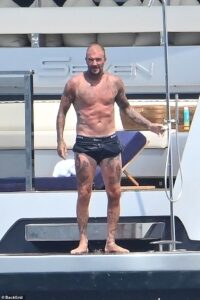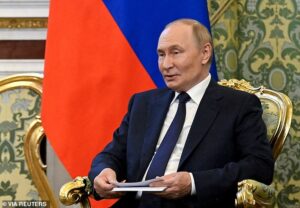By MARK DUELL, SENIOR REPORTER
Published: | Updated:
Grenada has dropped the oath of allegiance to King Charles III as Commonwealth countries continue to look at removing the British monarch as their sovereign.
State officials on the island, commonly known as the ‘Spice Isle’, will no longer take the oath to the King or his successors and instead make it to Grenada itself.
The change was brought in last Friday as Caribbean nations marked Emancipation Day, the anniversary of slavery being abolished in the British Empire in 1834.
Grenada’s Prime Minister Dickon Mitchell said in 2023 that he wanted the nation to become a republic and remove Britain’s monarch as its head of state.
The Constitution (Oath of Allegiance) (Amendment) (No. 1) Bill 2025 made the oath ‘Grenada’ instead of ‘His Majesty King Charles the Third, His Heirs and Successors’.
This applies to the Governor-General, members of Grenada’s Houses of Parliament, ministers or parliamentary secretaries and any ‘citizen by marriage’ taking the oath.
The new law also states: ‘Where in any written law prescribing an oath there appear the words ‘our Sovereign Lord the King’, those words shall be deleted, and there shall be substituted therefor the words ‘the people of Grenada’.
Since the death of Queen Elizabeth II in September 2022, there has been a growth in calls from activists in Caribbean countries for the King’s removal as head of state.
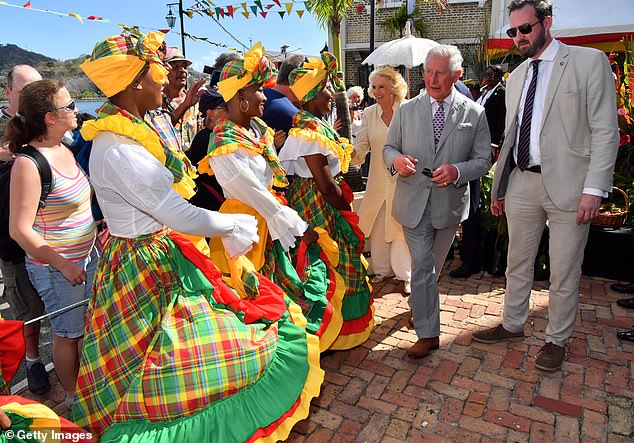
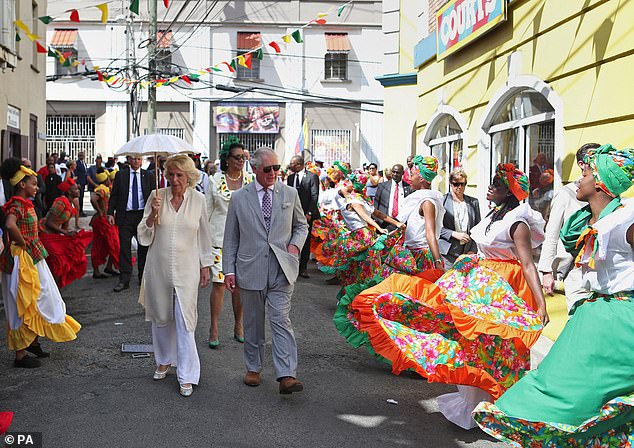
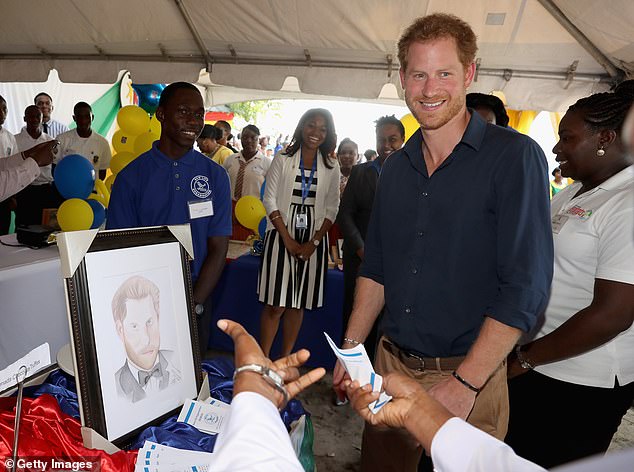
Grenadian-born academic Professor Gus John, a campaigner against social and racial inequality who moved Britain in 1964, is among those behind the campaign.
He told The Voice: ‘We have our national anthem, our beautiful flags. But when you dig deeper, what has that meant for the society? How economically independent are we and how much have we divested ourselves of colonialism?
Where is King Charles III still head of state outside the UK?
There are 14 Commonwealth realms that have retained the British monarch as their head of state, who is represented by a governor general:
- Antigua and Barbuda
- Australia
- Bahamas
- Belize
- Canada
- Grenada
- Jamaica
- New Zealand
- Papua New Guinea
- Saint Kitts and Nevis
- Saint Lucia
- Saint Vincent and the Grenadines
- Solomon Islands
- Tuvalu
‘The problem is there is a lot of religion being taught in schools and the Roman Catholic Church still has too much of an influence over what goes on in schools.
‘We have got to insist upon a distinction between religion and spirituality and go back to our roots and understand the importance of our ancestors and our ancestral traditions.’
One senator in the Grenadian parliament said that ‘to pledge allegiance to the British monarch is to continue the legacy of imperial subordination’, according to the Antigua Observer.
They added: ‘By replacing the colonial oath with a pledge of allegiance to Grenada; it’s one of the greatest ideals we can achieve as a nation.’
Mr Mitchell, a lawyer and former teacher, became Prime Minister in June 2022 following a tight general election having become leader of his National Democratic Congress party in the previous October.
At the time of the Queen’s death, Mr Mitchell said in a tribute: ‘I am sincerely saddened to learn of the death of Her Majesty Queen Elizabeth II.
‘As Head of the Commonwealth, Her Majesty’s steady leadership helped to unite people and countries from around the globe in common cause, and for this, Queen Elizabeth II will always be remembered. We mourn her passing and will continue to honour her legacy.’
But by May 2023, Mr Mitchell told Sky News he hoped the country would become a republic under his leadership, while acknowledging that the Grenadian population was divided on the issue.
He said: ‘If the public is convinced that it’s the right thing to happen, then I think we will see energy being galvanised and I think we will see us moving in that direction.’
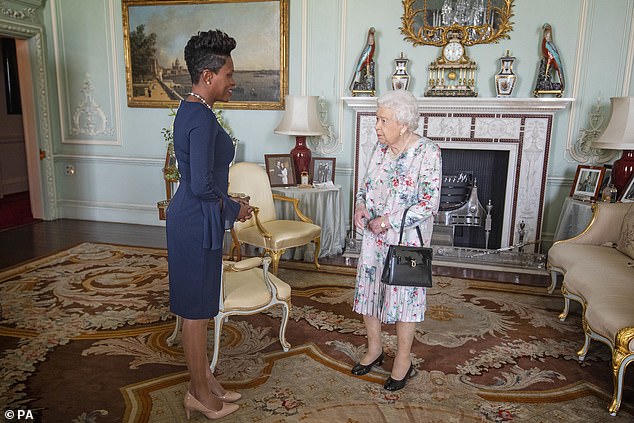
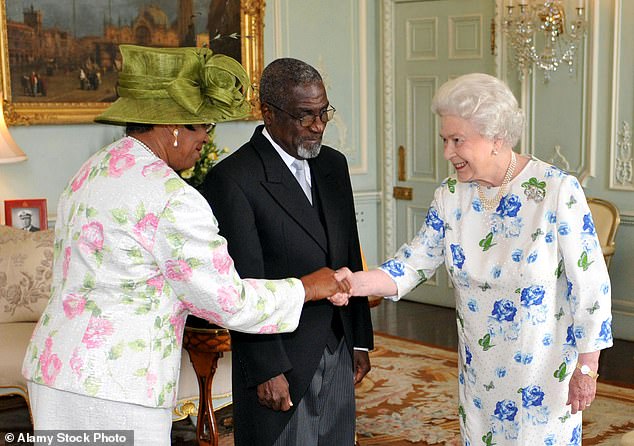
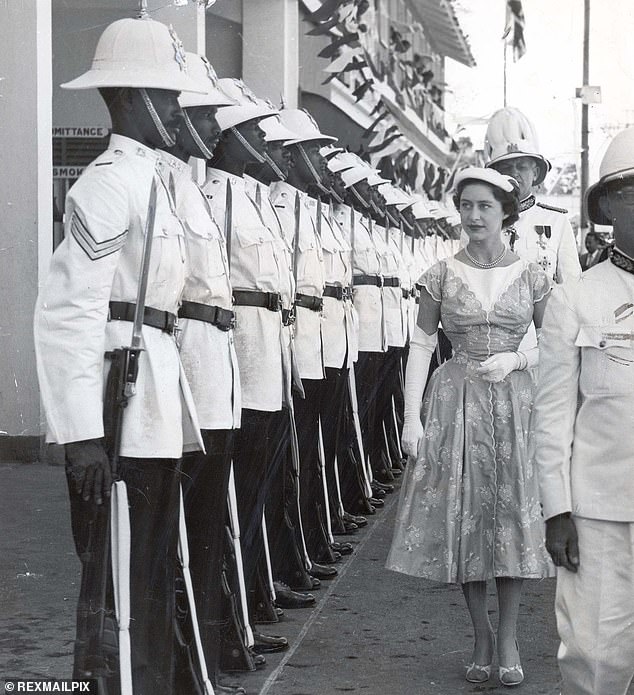
Grenada, which includes the island of Grenada and two smaller islands, Carriacou and Petite Martinique, has an estimated population of about 125,000.
The country marked 50 years of independence from Britain in February 2024.
Other Caribbean nations have also been looking at removing Charles as head of state to cut colonial ties, including Jamaica which gained independence in 1962.
Last December, the country’s Prime Minister Andrew Holness presented a bill to remove the King as head of state.
It would mean Charles’s representative in Jamaica – the governor general – would be replaced by a president nominated by the prime minister in consultation with the opposition leader.
If the two could not agree on a candidate, the opposition leader could recommend a name, and if that were not accepted, the prime minister could choose a nominee who would then be elected with a simple parliamentary majority.
Advocates of the move claim the legacy of slavery and colonialism has resulted in or played a role in enduring inequities, amid growing calls for reparations to address past wrongs.
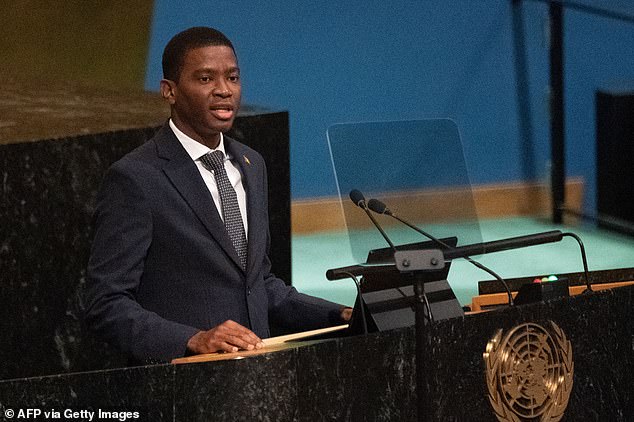
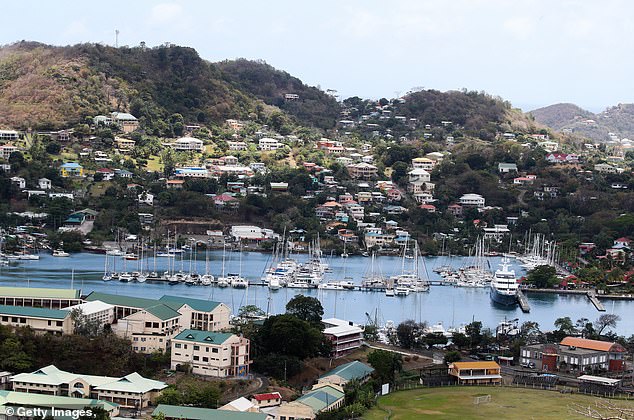
These have been rejected by Britain, but the removal of the monarchy as head of state is viewed as an issue for local people and politicians to decide.
Longstanding calls by some Jamaicans to abolish the monarchy picked up steam after Barbados, another former colony in the Caribbean, removed Queen Elizabeth II as head of state in 2021.
Mr Holness told Prince William during a visit by the royal in 2022 that Jamaica wanted to be ‘independent’.
On a visit to the Bahamas during the same tour in 2022, William said he supported and respected any decision Caribbean nations make about their future.
But in April 2022, the Grenada leg of a Caribbean tour by Prince Edward and Sophie was cancelled just one day before the week-long trip began.
Buckingham Palace said the decision followed talks with the island’s government and governor general.
It followed William and Kate being criticised for elements of their own Caribbean tour earlier in the year, including a Land Rover trip that was criticised for its colonial appearance, and local children being greeted through a wire fence.




